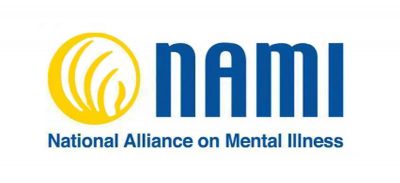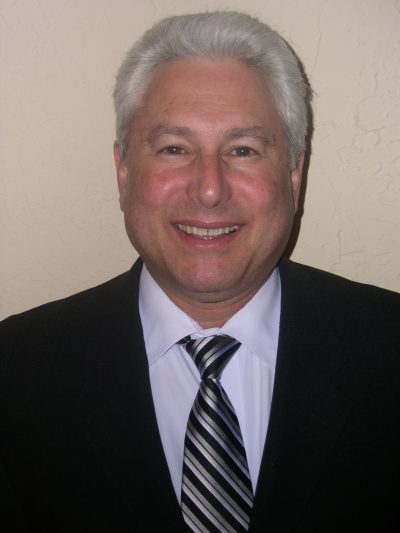
7-13-18) “Mark is an innovative leader who deserves recognition for his excellent work on the decriminalization of people with serious mental illness.” That’s how the National Alliance on Mental Illness described Mark Gale at NAMI’s 2017 national convention when he was presented with the Sam Cochran Criminal Justice Award. It was created to recognize “outstanding work in the criminal justice system to deal fairly and humanely with people living with mental illness.”
This blog is the final written by participants in a telephone call that was held by a consulting group helping NAMI develop a multi-year strategic plan. I first met Mark while researching my book, CRAZY: A Father’s Search Through America’s Mental Health Madness, when a mutual friend introduced us. We both had sons who’d been arrested because of their mental illnesses. Like the great father that he is, Mark jumped into NAMI with both feet and today he remains a tour de force in his home state of California. (Read more about him at the end of his open letter to NAMI.
A Personal Note to NAMI by Mark Gale
Dear NAMI,
Sixteen years ago, when crisis was an almost daily occurrence and we were alone with no one to help guide us, we met very special members of our organization who were brilliant people and passionate about helping our family. We also found support groups to help us heal and Family-to-Family classes to educate us. I have served as a Board member both at the local and state levels and continue my work today as the Criminal Justice Chair of the NAMI Los Angeles County Council. 
NAMI you are my brand and I am dedicated to our work, which is precisely why I feel compelled to share some thoughts with you.
At last year’s Convention, even though I had walked the Hill, advocated strongly, and was nationally honored by NAMI, which was an incredible moment for me, I returned home feeling troubled.
There was a divisiveness amongst us that was apparent and I believe damaging to the organization that I love.
I am speaking about the reaction to the candidates who ran on a “serious mental illness” platform. During that election our President, Steve Pitman, framed the dialogue as “big tent vs. small tent.”
I think some of the candidates were viewed as wanting NAMI to only focus on issues about serious mental illness-the small tent. That may have been true of some candidates, but not all. I have gotten to know some of them since and there is a sincere attempt to dialogue with both National and our State organizations to include input from the families living the most difficult and sometimes catastrophic of circumstances.
We are not asking to reduce the diameter of NAMI’s dialogue, but rather broaden it.
We are asking for equal time.
We all know that we started as a family member advocacy organization and, as time went on, those who lived with a mental illness wanted to join and participate. It was controversial and many family members were concerned that this new inclusiveness would alter our direction and policy.
There have been fierce battles between family members and peers in California, but I was proud that my organization, NAMI, was the ONLY organization to try and blend both groups of people together; not keep them separate.
“Consumers” became a part of NAMI and wanted a forum to discuss and represent their viewpoints and perspectives. A Consumer Council was formed which later developed into the Peer Leadership Council we have today giving many excellent NAMI members voice. And today our peer presenters in our CIT program, in partnership with our family members, are essential in helping to bring understanding about serious mental illness to the officers and deputies.
Let’s be straightforward about this. Big Tent, Small Tent became another way of saying Recovery Model vs. Medical Model, or outpatient treatment vs. various forms of involuntary treatment (AOT, inpatient, etc.). It’s a discussion we need to continue so everyone’s voice is heard.
I have been an advocate for people with mental illness and their families living through criminalization in circumstances that would horrify most anyone. I have spoken to countless families through the years and, just like all of you, continue to answer the crisis calls that never stop coming. Their stories have had a profound impact on who I am as a person and why I keep advocating for those who are the most ill even though our son is now doing OK. We are so thankful that we have not had a serious crisis in a long time. Others are not so fortunate.
We must keep talking to each other and not shout each other down.
To that end, family members dealing with serious mental illness have asked NAMI National, in the interests of inclusiveness and fairness, to create a Family Member Serious Mental Illness Council to inform the Board and our Staff of what is happening to them and other NAMI members in our communities. In fact, we want the same ability to dialogue, share problems and solutions as NAMI has provided our peers.
Isn’t that the very definition of the Big Tent? All voices are heard.
Why is it that the NAMI families who have the most serious, catastrophic, and sometimes tragic outcomes feel like they have to scream to be heard? The concept of a Family Member Serious Mental Illness Council has been turned down without any discussion. I implore NAMI National to give equal access to all families dealing with the challenges of very serious mental illness. I would be happy to see such a Council developed under the same governance rules as our other Councils.
The answers for all of us lie in advocating for a complete mental health system, not the incomplete disaster we have today. And we know that it must be linked with substantive criminal justice reform in order to end the mass incarceration of people with mental illness.
NAMI must listen to peers AND family members in order to develop solutions and remedies for the most serious challenges that face us. We must climb these mountains together, not divided. How can you have a Big Tent and not include people who are advocates for their very seriously ill loved ones? I can’t even believe I am saying it! It is only together that we are truly the Big Tent Steve spoke of.
Let’s keep talking to each other. Hope you had a great Convention in New Orleans! Sorry I couldn’t be with you this year.
Respectfully,
Mark Gale
Past President, NAMI San Fernando-Santa Clarita Valleys
Criminal Justice Chair, NAMI Los Angeles County Council
About the author: NAMI’s press release about Mark Gale:
SAM COCHRAN CRIMINAL JUSTICE AWARD Goes To Mark Gale
This award, named after the founder of the Crisis Intervention Team (CIT) training program, recognizes outstanding work in the criminal justice system to deal fairly and humanely with people living with mental illness. NAMI proudly recognizes Mark Gale, Criminal Justice Chair of the NAMI Los Angeles County Council. Mark represents NAMI on the Los Angeles County District Attorney’s Criminal Justice Mental Health Advisory Board, is a member of the Permanent Steering Committee of the Office of Diversion and Reentry and leads the NAMI CIT partnership with law enforcement in Los Angeles County.
Mark represented NAMI California on the Judicial Council’s Task Force for Criminal Justice Collaboration on Mental Health Issues and was recently appointed to the Collaborative Justice Courts Advisory Committee.
Mark also co-authored a guide, “My Family Member Has Been Arrested. What Do I Do?,” and developed an Inmate Mental Health Information Form. In addition, he received the 2014 NAMI California Criminal Justice Advocate Award. Mark has developed an exceptional training program for CIT that prepares NAMI peers and family members to present to a law enforcement audience. The toolkit provides information, guidelines, timelines, sample discussion questions and development of personal stories that maintain relevancy and positive messaging supporting the goals of CIT. Mark is an innovative leader who deserves recognition for his excellent work on the decriminalization of people with serious mental illness.



